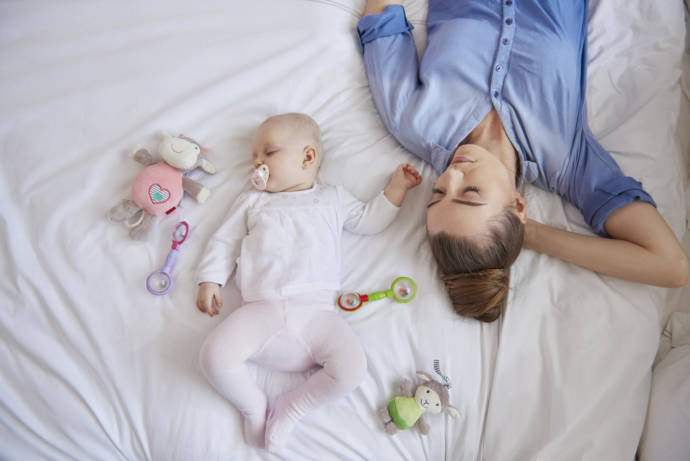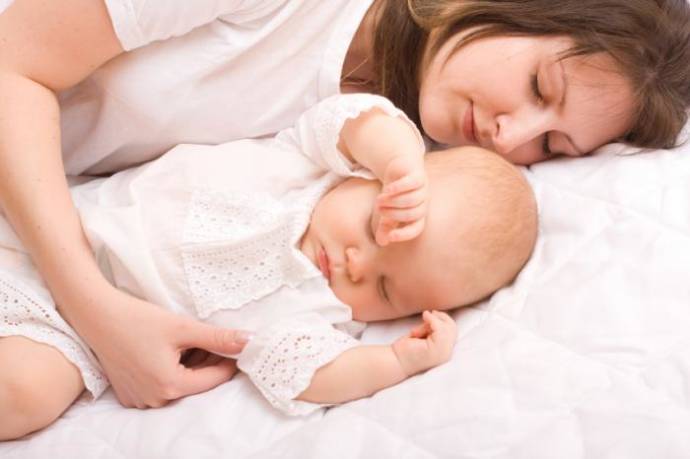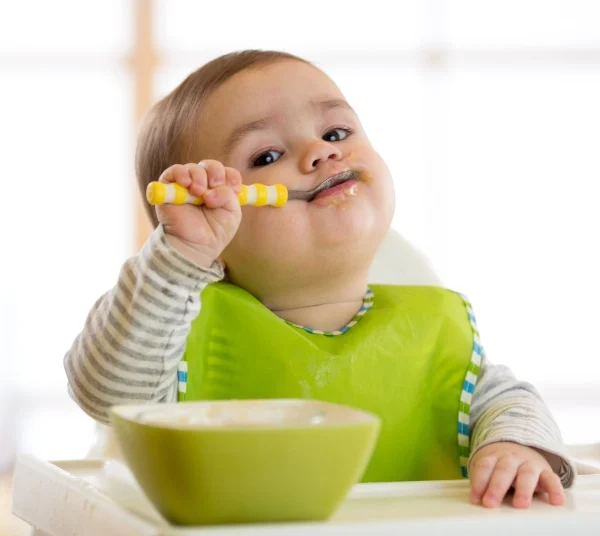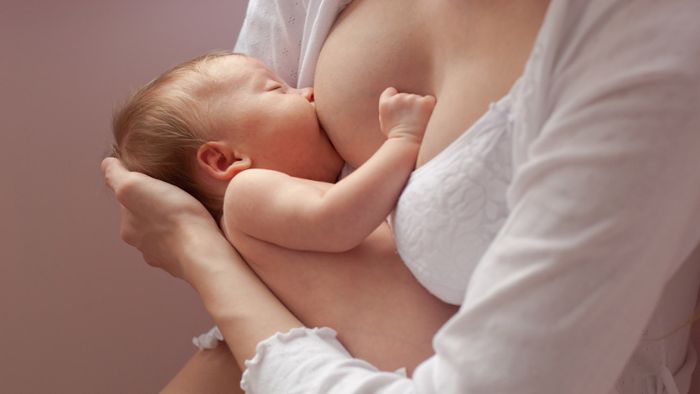Does your baby sleep like a log? Or he actually does different things while asleep? A baby does not always sleep completely peacefully when he is even in sound sleep. Creating different types of noises, banging head, moaning and even groaning at times are some of the common sleeping habits that you might observe in your baby. While these sleeping patterns and habits are perfectly normal for babies, they might also be indicative of some other problems at times. So, if your baby exhibits any of these sleeping patterns, there is nothing to be worried but ensure that there are no other reasons that might be causing him to exhibit the particular pattern or habit. Here is a checklist for all that new parents who need to know about baby sleep habits and patterns. Read on,
Snoring and snorting
Snoring and snorting while sleeping is a common habit of babies. So, if your baby sometime snores or snorts during sleep, there is actually nothing to be worried about it. Snoring and snorting are very common in babies during the first few weeks after birth. One of the other common causes of baby snoring while asleep is a stuffy nose. In case you baby has caught a cold or is recovering from it, he might actually snore due to the stuffy nose.
What you can do
First, stop worrying and check out if your baby continues snoring and snorting persistently. If there are some other symptoms of cold as well, do not waste time and visit the doctor immediately. Otherwise, use a humidifier or a vaporizer in the room which can make breathing much easier for your child by making the room air more moist.
In case, you find your baby snoring and snorting persistently while sleeping without any other signs of a cold while awake, it is safe to inform your baby’s doctor about the habit just to ensure that there are no other underlying problems that might be obstructing the breath in the child. If the doctor finds necessary, he might suggest you to visit a child specialist or a specialist for ear, nose and throat who will be able to examine and find out if there are any other underlying concerns.
Rocking the body while sleeping
This is another sleep behavior that often makes the new parents worried. However, according to doctors the best thing to deal such behavior in babies is to give it less importance. Your baby might rock in his crib and might even roll or bang his head while rocking in sleep. This is not usually any sign of emotional distress rather just a habit that he might enjoy. Usually babies develop this type of sleeping habit around 6 to 9 months of age.
The habit of rocking while sleeping often develops in babies who are lulled by the rhythmic back and forth motion on the lap or in the crib. This rocking habit naturally becomes soothing for the baby and he picks it as a pattern.
What you can do
If the rocking is not very loud or if it involves no risk for your baby, it is best to ignore it. If you try to stop this rocking habit of your baby forcefully, he might actually take it as a challenge and do it more. If the rocking is very loud or if you think that continuous rocking in his crib can be risky for him, it is best to change your own habit to rock him while soothing. Also make sure that his crib is away from the wall, so that it cannot be rocked easily by your child. If your child has this habit, check for any lose nuts on the crib everyday because all the rocking can easily weaken the bolts on the crib which can result into an accident sooner or later.
Pausing between breaths
This is another sleep habit of babies that often puts the new parents in tension. The breathing rhythm of babies can change while sleeping. Usually the breathing is rapid at first and then it slowly settles to a more relaxed breathing then pausing completely for 5 to 10 seconds or even more. After the pause, the baby again starts breathing rapidly. This sleeping habit can be observed in infants below 6 months of age. This type of breathing pause can actually look like that the child is having a breathing trouble, but in most of the cases it is nothing to worry about. Your baby might show this type of breathing pattern for 5 percent of time of sleeping, but if you observe this pattern always, it might need a physical re-examination by the doctor.
Periodic breathing and pausing the breath for 5 to 12 seconds while sleeping is considered normal for babies. Some infants even pause breathing for around 20 seconds while sleeping. This might be caused due to central sleep apnea, a result of immature brain stem, which is resolved over time as the baby grows. However, if the pause in breathing extends for more than 20 seconds, it is best to check out without the doctor.
What you can do
In most of the cases, irregular breathing habits and pausing breath while sleeping is nothing to worry about if your infant looks healthy otherwise. Putting your baby to sleep on his back, is one of the most effective ways to make sure that your baby can breathe more easily and most of the times this simple change in sleeping style resolves the problem. However, if your baby seems to wake up from sleep due to irregular breathing or if it seems that he is not able to breathe easily which is causing him to pause, you need to visit the doctor immediately.
Head banging
Head banging while asleep can be observed in some babies. Interestingly, your baby develops this habit as a way of comforting himself, particularly if he is in pain. Often infants over the age of 6 months develop this habit and it is more common when your child has an ear infection or when his first tooth is coming. The head banging habit while sleeping can continue for years in a baby and usually goes off on its own as the child gets 3-4 years old. It is hardly any signal of emotional issues that you need to be concerned about.
What you can do
If everything else seems to be normal with your child, including his growth and balance during the other times of the day, there might be actually nothing to be worried. Just tell your doctor about this pattern once you go on a regular checkup of your child to be on the safe side. However, make sure that the nuts and bolts of the crib of your baby is in the right condition as all the motion created due to the head banging might loosen up the nuts of the crib which can lead to an accident. It is also best to place the crib away from a wall where it might strike due to the motion created by the head banging of your child.
Lot of sweating while sleeping
Sweating is as common and natural in infants as it is in adults. However, babies often sweat more than adults or even older children while sleeping. Waking up all soaked from sleep is not unnatural for infants. Your baby might sweat profusely while he is in deep sleep during the night and it is just normal. However, if you notice that your baby sweats profusely even during other times of the day, like during eating, it is important to report the symptom to his doctor.
What you can do
If your baby sweats profusely only while he is asleep, normally there is nothing to worry about. Dress your baby in light clothing and resist the urge of bundling him up in lots of cloth. Also make sure that the crib is not filled with quilts and blankets which might be actually making it more hot for your baby causing him to sweat profusely. Light clothing in which you will feel comfortable to sleep is ideal for babies too. Also keep the crib free from extra cushions and blankets so that it is not extra hot. The temperature of the room should be comfortable. However, if the room is cold and your baby has only light clothing on but still he is sweating profusely, you should consult a doctor immediately.
Grinding teeth
Teeth grinding is another sleeping pattern that parents often complain about. A child can develop the habit of teeth grinding at any age after the age of 6 months, when his teeth are out. Half of the babies have this sleeping habit and in most of the cases it is nothing important or serious. Many babies develop this habit during the coming of the new teeth which causes sensation and/or pain. An ear ache, a stuffy nose or a breathing problem can also be a reason behind continuous teeth grinding.
What you can do
If your baby shows persistent teeth grinding habit while sleeping, you should talk with his doctor to ensure that he is not doing it due to any other reason apart from the coming of new teeth. If your baby grinds his teeth a lot, you might need to talk to a pediatric dentist just to ensure that all the grinding is not harming the enamel of his teeth. However, in most of the cases it is not a sign of anything serious that you need to be concerned about.





